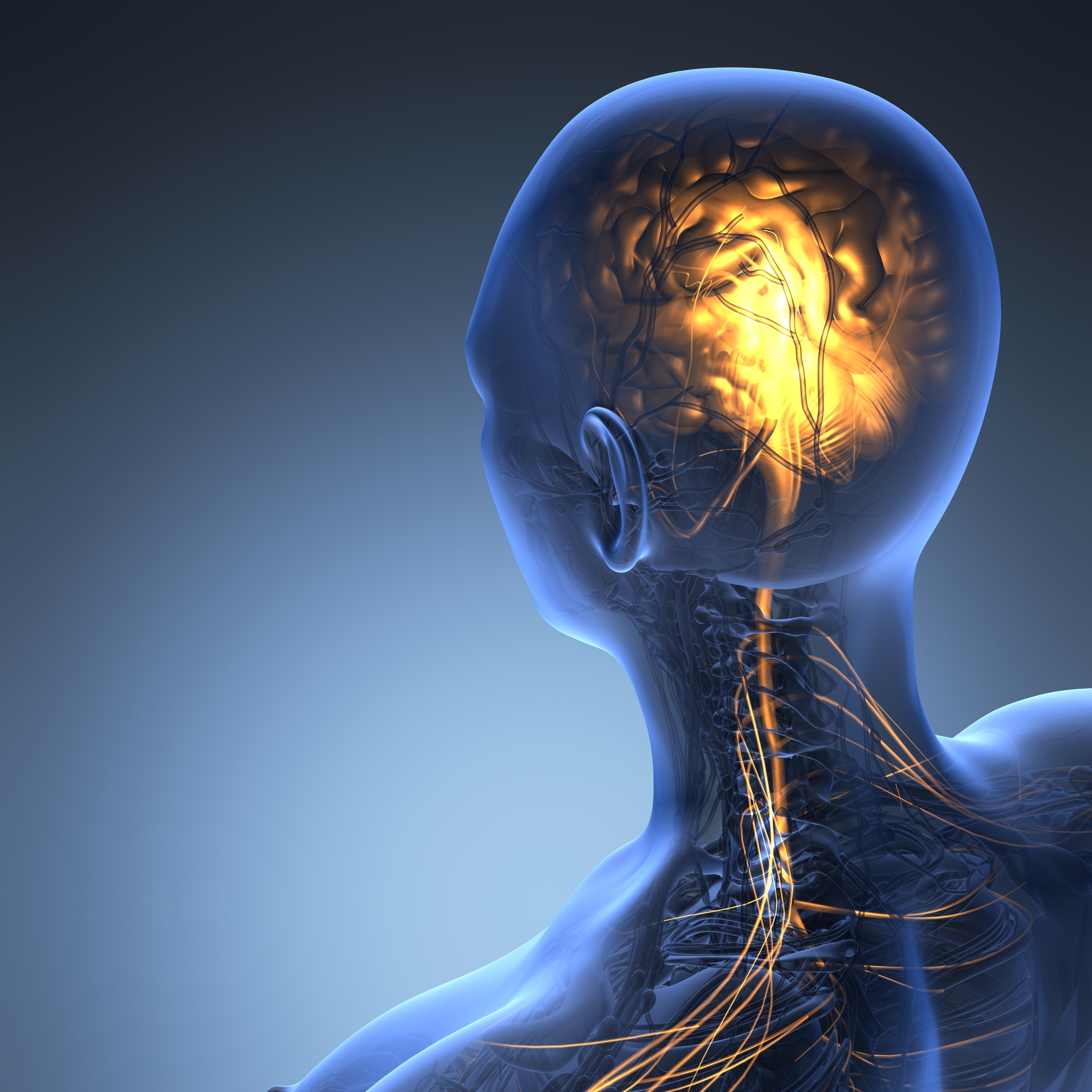The statistics are shocking: mental illness affects one in five Canadians and costs our healthcare system about fifty billion dollars a year. The cost of treating mental illness and addiction is 1.5 times that of all cancers and seven times the cost of all infectious diseases.
When conventional therapies end up being ineffective or result in a long list of undesirable side effects and dependencies, it’s no wonder individuals suffering from mental illnesses can feel defeated and turn to alternative therapies.
Anxiety and depression are two of the most common mood disorders with anxiety holding the number one spot in Canada. One in four Canadians experiences at least one anxiety disorder in their lifetime. It is not unlikely to find anxiety coexist with depression and the two often occur together. Feeling anxious and sad are natural emotions and it can be difficult to diagnose the severity.
Diagnosis
Generalized anxiety disorder (GAD) and major depressive disorder (MDD) interfere with daily activities such as job performance, school work and relationships. Mental illness is the leading cause of disability and accounts for approximately 30 percent of all short and long-term disability claims. In fact, it is reported to be one of the top three claims made by 80 percent of Canadian employers. Depression and anxiety can be extremely debilitating.
Comorbidity
Anxiety has a remarkably high comorbidity with depression and vice versa. The reasons may in part be due to a strong genetic correlation, and possibly partially due to the strong overlap in diagnostic criteria. Similar neuropeptides and pathways are shared in the pathophysiology of these disorders and therefore they commonly occur together and can be thought of as the fraternal twins of mood disorders.
According to The Diagnostic and Statistical Manual of Mental Disorders (DSM-5), some GAD and MDD symptoms that overlap includes difficulty sleeping, concentrating, being easily fatigued, and exhibiting psychomotor agitation. It is important to make sure an anxiety diagnosis does not mask that of depression and vice versa because the two often co-exist and the clinical implications can be severe.
Increased risk of suicide, psychiatric hospitalization, disability and decreased compliance with treatment are all hazards of misdiagnosis.
Magnesium and GABA Receptors In The Brain
Magnesium plays an important role in a multitude of biochemical reactions in the body, including the brain. Neurological functions of magnesium include cellular energy production, regulating neurotransmitters such as serotonin, dopamine and gamma-Aminobutyric acid (GABA), regulating ion gradients, and neuronal excitability.
Dysregulation of these systems plays an important role in the etiology of both depression and anxiety.
GABA Receptors
Magnesium has been shown to modulate GABA activity in the brain. Magnesium ions can occupy GABA receptors acting as GABA receptor agonists to help facilitate GABA neurotransmission. GABA is an inhibitory neurotransmitter in the brain that plays a role in motor control, vision, and anxiety.
GABA and magnesium bind to benzodiazepine receptors resulting in an anxiolytic effect. These are the same receptors that are targeted with anxiolytic prescription medications like Lorazepam (Ativan) or Diazepam (Valium).
NMDA Receptor Inhibition + Glutamate
Glutamate is an excitatory neurotransmitter that plays an important role in the development of the brain and is a key player in neuroplasticity, learning, memory, and locomotion. The amount of glutamate released in the brain is tightly regulated by the central nervous system.
When this equilibrium is disrupted through some form of trauma, glutamate concentrations in the brain can increase. Contrary to its primitive function, in excess, this neuropeptide is toxic and destructive in the brain, leading to neurotoxicity and cell death. Increased levels are found in the brains of patients suffering from major depressive disorder, which may play a role in its pathophysiology.
Magnesium is a very potent inhibitor of NMDA receptors (N-methyl-D-aspartate receptor), which are a subtype of glutamate receptors. Magnesium is a natural antagonist to calcium and exerts its inhibitory effect in the nervous system by blocking the flow of calcium through the voltage-dependent NMDA receptors, preventing an excitatory response in the brain.
A magnesium deficiency coupled with high levels of calcium and glutamate is a recipe for disaster in the brain. This combination can depolarize neuronal membranes and lead to altered synaptic function and the development of anxiety and depression. The NMDA/glutamate pathway is one-way magnesium exerts its anxiolytic and antidepressant effects in the brain.
Up to 80% of the brain uses GABA and glutamate for inhibitory and excitatory responses, respectively.
Monoamines
Magnesium exhibits anti-depressive effects through its interaction with serotonin, noradrenaline, and dopamine receptors. The mechanism of how this works is not fully understood, but several studies indicate that a relationship does exist. This pharmacokinetic relationship has been illustrated in studies that show an increase in erythrocyte magnesium concentration with the administration of psychotropic drugs such as antidepressants and antipsychotics.
Furthermore, magnesium supplementation has been shown to enhance the activity of antidepressants, demonstrating a synergistic action with these drugs.
This last point is important to consider if you are supplementing with magnesium and also taking an antidepressant drug — such as a norepinephrine and dopamine reuptake inhibitor (NDRI) like Wellbutrin, a serotonin and norepinephrine reuptake inhibitor (SNRI) such as Pristiq, Cymbalta or Effexor; or a selective serotonin reuptake inhibitor (SSRI) such as Celexa, Prozac or Zoloft.
HPA Axis
Chronic stress leads to excess cortisol levels which can negatively affect other neuropeptides like serotonin and be a contributing factor to anxiety and depression. Magnesium has been shown to play a positive role in the stress response through its influence in the limbic-hypothalamic-pituitary-adrenocortical axis.
Magnesium can reduce the release of adrenocorticotropic hormone (ACTH) and affect adrenocortical sensitivity to ACTH, which helps to modulate the amount of circulating cortisol in the body. High cortisol levels can also deplete magnesium levels, which further supports the benefits of supplementation.
Choosing the best magnesium for anxiety and depression
Several forms of magnesium exist so it is important to recognize the therapeutic applications of each. Magnesium bis-glycinate is an excellent choice for treating anxiety and depression for the following reasons:
- it is the optimal form for correcting a deficiency due to its superior bioavailability to other forms
- glycine enhances its anxiolytic properties
- it is the optimal form to achieve therapeutic doses without a laxation effect
Why Magnesium Bis-Glycinate?
Glycine, like GABA, is a significant inhibitory neurotransmitter in the central nervous system. Glycine helps to regulate NMDA receptors and glutamate transmission, thereby creating a sense of calm in the nervous system. Taurine, another amino acid, plays a very similar calming role in the brain.
Very interesting case studies presented by Eby and Eby (2006) demonstrated that 125-300 mg of magnesium glycinate and taurinate per day alleviated symptoms of major depression within seven days.
In addition to its profound antidepressant effects, it also provided relief from a headache, suicidal ideation, anxiety, irritability, insomnia, and short-term memory loss. What a collection of multi-beneficial side effects!







Can magnesium glycinate be administered alongside lamotrigine?
Hi there, thank you for your question. Magnesium glycinate is generally very well tolerated, but we do recommend that you check in with your healthcare practitioner or pharmacist to ensure this combination is ideal for you. There are no known interactions as per the Natural Medicine Comprehensive Database Drug interaction tool, however, according to drugbank.com, “the therapeutic efficacy of magnesium glycinate can be decreased when used in combination with Lamotrigine”. Hope this helps!
This may be a tricky question, but worth it to me, to ask. I heard Magnesium down regulates GABA?
I am doing a slow taper off of a benzodiazepine. Benzodiazepines down regulate the GABA receptors. While I am tapering, the receptors will slowly up-regulate. If I were to take magnesium, would it be counterproductive? Trying to up regulate the receptors while tapering, but down regulating if taking magnesium? Hope that made sense. Thank you
Hi there, thank you for your question! This is a great question and a complex one as individuals will vary in terms of their response to supplements as they are tapering off benzodiazepines.
Some individuals may experience benefits with the calming effect of magnesium while tapering, due to GABA (A) receptor activation and a blocking effect of glutamate (through NMDA receptor activity). There are some reports in the literature of magnesium aspartate being beneficial for reducing benzodiazepine addiction and symptoms (https://www.ncbi.nlm.nih.gov/books/NBK507260/). Some individuals find starting with a low dose of magnesium may be beneficial to gauge a response and tolerance (eg. 50-80mg). Food sources of magnesium are also a gentle way to support magnesium intake. Consider pumpkin seeds, Swiss chard, chia seeds and almonds in the diet, if they are tolerated.
There are also reports of a worsening of withdrawal symptoms (often anxiety) with magnesium supplementation during tapering. The Benzodiazepine Information Coalition has some information related to this. Please visit: https://www.benzoinfo.com/medications-and-supplements
They include magnesium on a ‘Potentially Dangerous Substance list’ that one may “wish to avoid during a taper, benzodiazepine cessation, during protracted withdrawal and even after healing, due to the potential for interference with recovery’ due to magnesium’s ability to bind to GABA (A) receptors.
We recommend that you work with a Naturopathic Doctor or consult with your physician or pharmacist as you consider adding supplements to your daily protocol while tapering off the benzodiazepines to ensure you have the best support/care and a protocol that is ideal, safe and effective for you. Hope this helps!